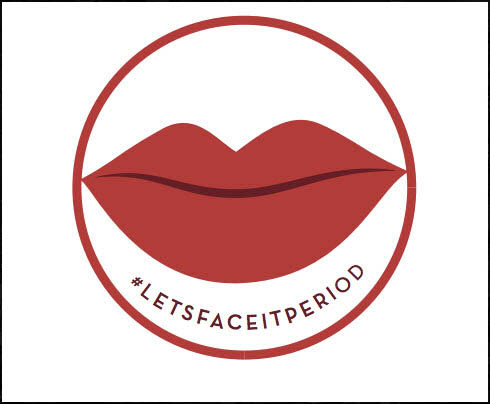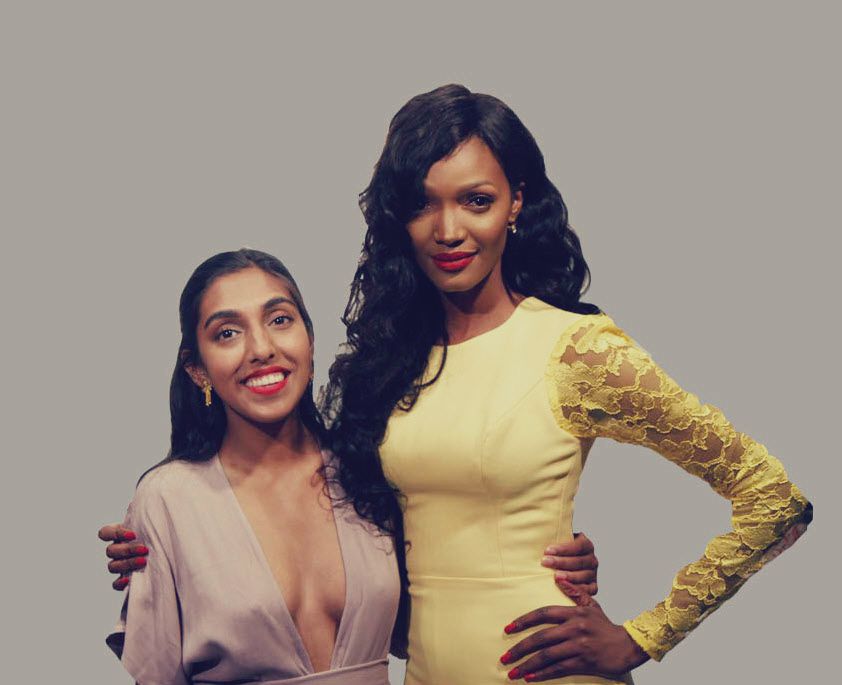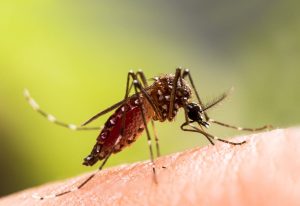THIS PAST SEPTEMBER 1ST, the Bushtember Foundation and NFCC International launched their women’s health campaign called “Let’s Face It. Period.” Using a blend of education, conversation, and awareness, the campaign hopes to break the taboo currently surrounding menstruation. Founders Erin Levi and Aga Wilson have a whole month of online and IRL events planned alongside a “red lipstick challenge” that hopes to harness selfies for social good. The Bushtember Foundation and NFCC International are raising funds for menstruation-centric programs across the globe, while also providing women with an education in menstrual products, menstrual health issues, and alternatives to hormonal birth control. Riding the crimson wave of the period trend — what with #livetweetyourperiod, Donald Trump, and free-bleeding all making the headlines in the past month — the campaign is bound to make an impact. Lady Clever spoke with both Levi and Wilson about the campaign amnd
What led you to start the “Let’s Face It. Period” campaign?
Erin Levi: I was working in PR, specifically travel PR, for 7 years. I thought it’d be really great to create a social media campaign for women’s reproductive health. There is so much awareness around something like breast cancer and I thought it was important to do something for below the waist! I wanted to bring attention there. I co-founded a fledgling foundation called Bushtember. We’re going to confront taboos concerning women’s bodies and censorship and those sorts of things. We are also going to raise funds and awareness for women’s health. This campaign is in collaboration with Aga’s association, NFCC International. Aga had been working on some wonderful campaigns in Nepal. We knew that menstruation was going to be the next hot topic.
Aga Wilson: I was working with UNICEF in Nepal for a while and I discovered the organization NFCC. My colleague who runs NFCC Nepal wanted to expand and open an office in New York, which we did together in January this year, and NFCC became NFCC International. The office in Nepal has been working on sexual reproductive health and women’s empowerment for 26 years. We have focused on menstrual hygiene management since 2009, when it wasn’t really a hot topic and when many people didn’t understand why it was important. With the earthquake in Nepal, it was highlighted that women needed disposable menstrual products because of the lack of clean water, hygiene facilities, and so on. We had to get in there and provide those services. This brought the topic more to the forefront. Erin and I started talking about the “Let’s Face It. Period” campaign a year ago and we came up with “the lipstick challenge.” We were trying to think of what would be the most symbolic image for a selfie campaign – the mouth represents the conversation and the lipstick represents menstruation, but also love and loving yourself.
 Why do you think periods have become such a hot topic in 2015?
Why do you think periods have become such a hot topic in 2015?
AW: It was something that first came to my attention in the developing world. I saw it coming up through the menstrual hygiene and menstrual management movements. It has been more of a concern and more organizations have included it in their programming. Lately, there have been more discussions bubbling up. The force of social media has helped. I’m from Sweden, and in Scandinavia there is a real movement around menstruation. This year, NFCC — together with a lot of partners — coordinated the global Menstrual Hygiene Day. Through that we connected with so many women and men in New York who work on menstrual hygiene management. Everything is coming together now and they are again collaborating with us on this project.
EL: We had been planning this campaign for a while when Rupi Kaur’s image of a menstrual leak hit Instagram. That’s when I realized this was going to be big. It connected to the censorship of the pubic hair, like with Petra Collins’ image on Instagram, and images of real female bodies. People don’t want to see what a real woman looks like. It runs counter to the pornified or over-sexualized way women are otherwise represented. It’s all definitely in the zeitgeist. It’s the perfect time for this campaign to launch. I realize we’re no longer “starting” the conversation, though, it’s already happening and we’re just helping it grow.
Can you give us a recap of the event?
EL: Rupi Kaur spoke about what it was like when her photo went viral and what it was like to get her first period. She said, “I’m going to have this for the next 30 or 40 years of my life so I need to love it.” Millen Magese spoke about dealing with endometriosis and having over 13 operations. Mari Malek talked about the importance of providing sustainable and reusable pads to girls in South Sudan to help them to stay in school. We showed a short video that dealt more with the issue in the developed world, which is the tax on femcare products. And we had a video message from Kiran Gandhi, [in which] she spoke about why she free-bled in the marathon and why it’s so important to talk about menstruation.
What would you like to see come out of the campaign within the US?
AW: I think it’s very important to create more awareness in men and boys — as menstruation concerns half of the global population. We need to destigmatize menstruation with an open and peaceful conversation. People need to share experiences and gain knowledge. There are a lot of women who do not have any information on menstruation and do not know how to manage their periods. We have five amazing organizations we work with that are doing great work on the ground and we want to raise money to help them implement their programs. There’s also a bill – the Robin Danielson Act – in the US that needs our support so we can know what toxins go into our tampons and pads.
EL: I want to raise awareness in a fun and playful way to engage people – like with the red lipstick selfies. I’d like to tap into those groups of people who don’t think about why this is an issue at all and those who think there are more important things we should be focusing on, like female genital mutilation. But this is the basis of so many problems. Most people don’t know about the tampon tax issue in the US. I didn’t even know until we started planning this campaign.
How has working in this field changed your feelings about your own periods?
AW: I was never one of those people who hates their period, but I do feel like it has changed my mind about it. It’s an amazing thing, a miracle, the woman’s ability to give life, and it’s so beautiful. Now when I have my period I’m trying to really appreciate it. I didn’t do that before — I would just worry or moan about it. And now I have this compassion for all the women around the world who go through this with me. It’s my connection to all women. I see it as something completely positive now; even if I have cramps, I think about the women who go through worse. I love it, and I love that we have that gift.
EL: Before I started on this campaign, I was staying at my friend’s parents’ summerhouse and I got my period unexpectedly during the night. I had bloody sheets and I felt really bad about it. I felt really ashamed about it, but I realized that if I had cut my finger or my foot I wouldn’t have felt bad. Now we have these images on social media featuring women like Louelle Denor, who showed her menstrual cup filled with menstrual blood and got death threats. Why is that blood so different to the other blood that’s running through our veins that you can’t post a picture of it or appreciate it? Why do we have to be ashamed? When I was producing the video on tampon tax, during the day of production, I got my period and told everyone – I was like, “I think it’s a sign! It’s a blessing! It means we’re on the right track.” Then this girl who came to our launch event told us she got her period on her way there. So, it’s been a nice way of bringing people together. We’re all sharing our period stories in a nice way.
For more information about the work that Aga and Erin are doing, and to learn more about Let’s Face It. Period, check out the Bushtember Foundation.



-300x200.jpeg)









-300x241.jpeg)




